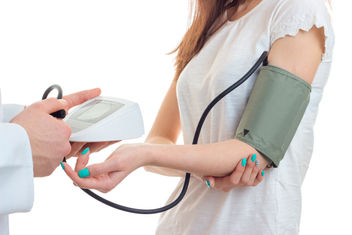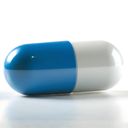Kidney Disease and High Blood Pressure: How are They Related
February 23, 2021Your kidneys and blood vessels work in tandem. Together with the blood vessels and circulatory system, the kidneys filter out toxins and deliver essential nutrients throughout the body. When the blood vessels become damaged, the kidneys are unable to do their job properly. This is why high blood pressure is one of the leading causes of kidney disease and kidney failure.

The Inside Rx Blog
Get the Inside Scoop on tips & tricks that may help your family save on prescriptions!
Subscribe to stay up to date with the latest news and tips
How the kidneys work
The kidneys are essential organs of the body that are approximately the size of your fist. You have one of them right below each side of the rib cage next to the spine. Blood flows into the kidneys where it goes through a filtering process.
The kidneys are made up of numerous filtering units that help filter the blood. These filtering units are called nephrons. Within the nephron are the glomerulus, a tubule and important blood vessels, including the renal artery and renal vein.
Blood from the renal artery flows into the glomerulus, which allows smaller molecules like toxins and nutrients to pass through to the tubule. The tubule then allows water and important nutrients to be reabsorbed back into the blood and returned to the rest of the body via the renal vein. The fluid and waste that is left in the tubule becomes urine and is excreted from the body.

Vyvanse Coupon Guide 2025: How to Cut Your Prescription Costs

Chronic Kidney Disease: Warning Signs You Shouldn't Ignore

Seasonal Allergies Treatment: Simple Solutions That Bring Real Relief

Lost Your Job? Here's How to Get Prescriptions Without Insurance Today
How kidney disease and blood pressure are related
Because the kidneys are composed of an elaborate network of blood vessels, blood pressure can affect how the kidneys work. Uncontrolled high blood pressure can cause blood vessels in the kidneys to narrow and weaken, which can decrease blood flow to the kidneys. When the blood vessels are damaged, the nephrons in the kidney do not receive enough oxygen or nutrients and are unable to filter the blood.
Without proper filtering of blood in the kidneys, toxins can build up in the body. This can lead to chronic kidney disease (CKD). Over time CKD that is untreated can lead to kidney failure, also known as end-stage renal disease (ESRD), which can be life-threatening. People with ESRD will either need a kidney transplant or life-time dialysis treatments, or treatments that use a machine to filter the blood. According to the CDC, about 30 million people of 15% of adults have CKD.
People with high blood pressure do not often experience symptoms. For this reason, high blood pressure can be a silent disease that is only felt when it leads to a serious problem like kidney failure. Symptoms of kidney problems may include:
- Trouble urinating
- Increased urgency to urinate, especially during the night
- Edema, or swelling, in the legs
- Worsening high blood pressure
Valsartan
$ 15.80Spironolactone
$ 5.78Take care of your kidneys by taking care of your blood pressure
Kidney problems often develop over a long period of time. That means there are ways to help reduce your risk of kidney disease or kidney failure. One of the primary ways to take care of your kidneys is to watch your blood pressure. By preventing or managing high blood pressure, you can reduce your risk of complications from kidney disease. Other ways to prevent kidney disease and high blood pressure include:
- Quitting smoking
- Managing stress
- Adhering to a heart-healthy diet (with limited salt intake)
- Sticking to a regular exercise routine
- Managing body weight
Medications are also an important component of managing high blood pressure. If you have been diagnosed with high blood pressure, taking your medications is one of the best ways to prevent kidney problems. Medications for high blood pressure include angiotensin-converting enzyme (ACE) inhibitors, such as Lisinopril, benazepril or enalapril, and angiotensin receptor blockers (ARBs), like Edarbi, losartan, or valsartan, as well as diuretics, like torsemide or spironolactone.
If you are prescribed medications for prevention, have no fear! The average cash price of medications can be expensive, especially if you are uninsured. However, with Inside Rx, you may be able to save up to 80% on both brand and generic prescription drugs. Inside Rx can help you find the high blood pressure medications you need at an affordable price. Simply type your medication in the search bar, enter your zip code and see if you can save at the pharmacies right in your neighborhood. Inside Rx is a prescription savings card that can be used at over 60,000 participating pharmacies across the U.S. and Puerto Rico. Download your card today and see if you can save on your medication.